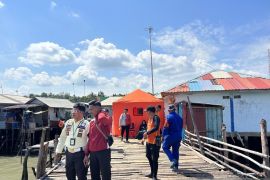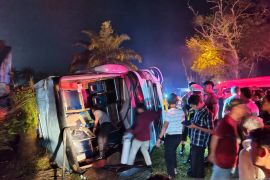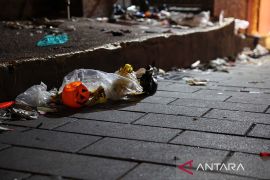He expressed the conviction because "despite the impact of global economic slowdown political and security situation in Indonesia are conducive."
This must be made known to the business community and the people of Indonesia, he said.
He made the statement when meeting with university rectors from across the country at the State Palace.
A total of 23 university rectors attended the meeting including the chairman of the Rectors Forum and the chairman of the Council of State University Rectors.
All economic indicators are better now as compared to those during the economic crisis in 1998 and 2008, President Joko Widodo reiterated.
However, hard work was needed to move the national economy, he said.
The government had produced an economic stimulus package to move the real estate sector and increase budget spending as well as rural fund disbursement for labor intensive activities, President Joko Widodo explained at the meeting, where he was flanked by Minister/State Secretary Pratikno and the Presidents Chief of Staff Teten Masduki.
The government had also accelerated the realization of infrastructure projects such as dams, irrigation, and power, in addition to toll roads and port development, he said.
The current low budget spending had happened because users were being very careful for fear of facing criminal cases, the president said.
It had also happened due to the overlapping of many regulations, and in view of that the presidents communication team member Ari Dwipayana, in a press statement, said the president had emphasized the importance of deregulating rules that hinder national economic progress.
The rectors at the meeting had conveyed a number of important ideas to the president including the need for regulations to make the Ministry of Research and Technology and the Higher Learning education office play a facilitating role.
The deregulation is important to assure legal certainty, coherence and consistency of regulations.
They also proposed incentives if industries use the results of their research for further research and development by the universities.
They also proposed a policy to support research in the development of downstream industries including the governments support to downstream industrialization of the results of research by universities and incentives for industries cooperating with universities.
The rectors had expressed the hope of additional aid to poor students as well as operational assistance for state universities.
President Widodo responded positively to their ideas and had expressed his commitment to helping the poor students.
On the occasion, the president also asked rectors to keep giving him inputs directly to him or through the state secretary.(*)
Editor: Heru Purwanto
Copyright © ANTARA 2015











